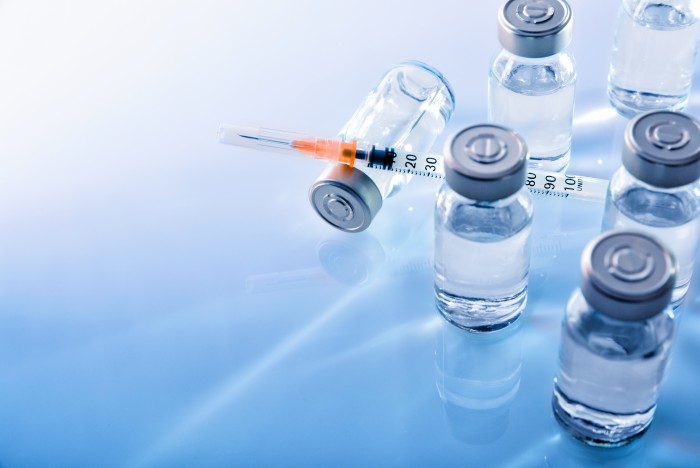Data Reveals High Vaccine Efficacy for Moderna, Pfizer Doses
New data reveals high vaccine efficacy for both the Moderna and Pfizer-BioNTech vaccines, while clinical trial results hamper baricitinib use for COVID patients.

Source: Getty Images
- The New England Journal of Medicine (NEJM) recently released antibody persistence data six months following the second dose of Moderna’s COVID-19 vaccine, mRNA-1273.
As detected by three distinct serologic assays, antibodies elicited by the Moderna COVID-19 vaccine persisted through six months after the second dose.
Researchers found that 180 days after the second dose of 100 micrograms of mRNA-1273, the vaccine elicited binding and neutralizing antibodies in 33 healthy adult participants in a Phase 1 trial.
Nearly all participants had detectable activity in pseudovirus neutralization assay.
Binding antibodies had geometric mean end-point titers of 92,451 in participants 18 to 55 years of age, 62,424 in individuals 56 to 70 years of age, and 49,373 in individuals 71 years of age.
Researchers used an exponential decay model and a power-law model to estimate the half-life binding antibodies after a certain number of days. For Day 43, the estimated half-life binding antibodies for all participants was 52 days, calculated with the decay model.
For power-law model, the half-life binding antibodies after Day 43 was 109 days.
The neutralizing half-life estimates in the two models were 69 days and 173 days, respectively.
And the neutralizing antibody half-life estimates for live-virus neutralization was 68 days and 202 days, respectively.
Ongoing studies are monitoring immune responses beyond six months and determining the effect of a booster to extend the duration against emerging viral variants. So far, the data show antibody persistence and support the use of this vaccine in addressing the pandemic.
“We are pleased that this new data shows antibody persistence through 6 months following the second dose of our COVID-19 vaccine,” Stéphane Bancel, chief executive officer of Moderna, said in a press release following the NEJM publication.
“This gives us further confidence in the protection afforded by our COVID-19 vaccine. We remain committed to continuing to address the COVID-19 pandemic,” Bancel continued.
Pfizer Confirms High Efficacy of its COVID-19 Vaccine Six Months After Second Dose
Pfizer and BioNTech recently announced topline results from an analysis of 927 confirmed symptomatic cases of COVID-19 observed in their Phase 3 study.
Researchers found that the vaccine, BNT162b2, was 91.3 percent effective against the coronavirus, measured seven days through up to six months after the second dose.
Additionally, BNT162b2 was 100 percent effective against severe disease as defined by the CDC and 95.3 percent effective against severe COVID-19 as defined by FDA.
Safety data from the study has also been collected from over 12,000 vaccinated participants at least six months after the second dose, demonstrating a favorable safety and tolerability profile.
Eli Lilly and Company’s COVID-19 Antibody Fails in Phase 3 Clinical Trial
Eli Lilly and Company and Incyte recently announced results from their Phase 3 trial, COV-BARRIER, which evaluated four milligrams of baricitinib once daily plus standard of care versus placebo plus standard of care.
COV-BARRIER was the first global, randomized, double-blind study to assess baricitinib versus a placebo in 1,525 patients hospitalized with COVID-19 receiving standard of care.
Overall, baricitinib did not meet statistical significance on the primary endpoint, which was the difference in the proportion of participants progressing to the first occurrence of non-invasive ventilation.
Patients who received baricitinib were 2.7 percent less likely than those receiving standard of care to progress to ventilation or death. According to researchers, this was a difference that was not statistically significant.
The frequency of adverse events and serious adverse events were generally similar in the baricitinib (44.5 percent and 14.7 percent, respectively) and placebo (44.4 percent and 18.0 percent, respectively) groups.
Additional research is ongoing to evaluate the potential role of baricitinib in COVID-19, including NIAID's ACTT-4 trial. The trial is evaluating the safety and efficacy of baricitinib in combination with remdesivir in hospitalized adults with COVID-19 on supplemental oxygen.
